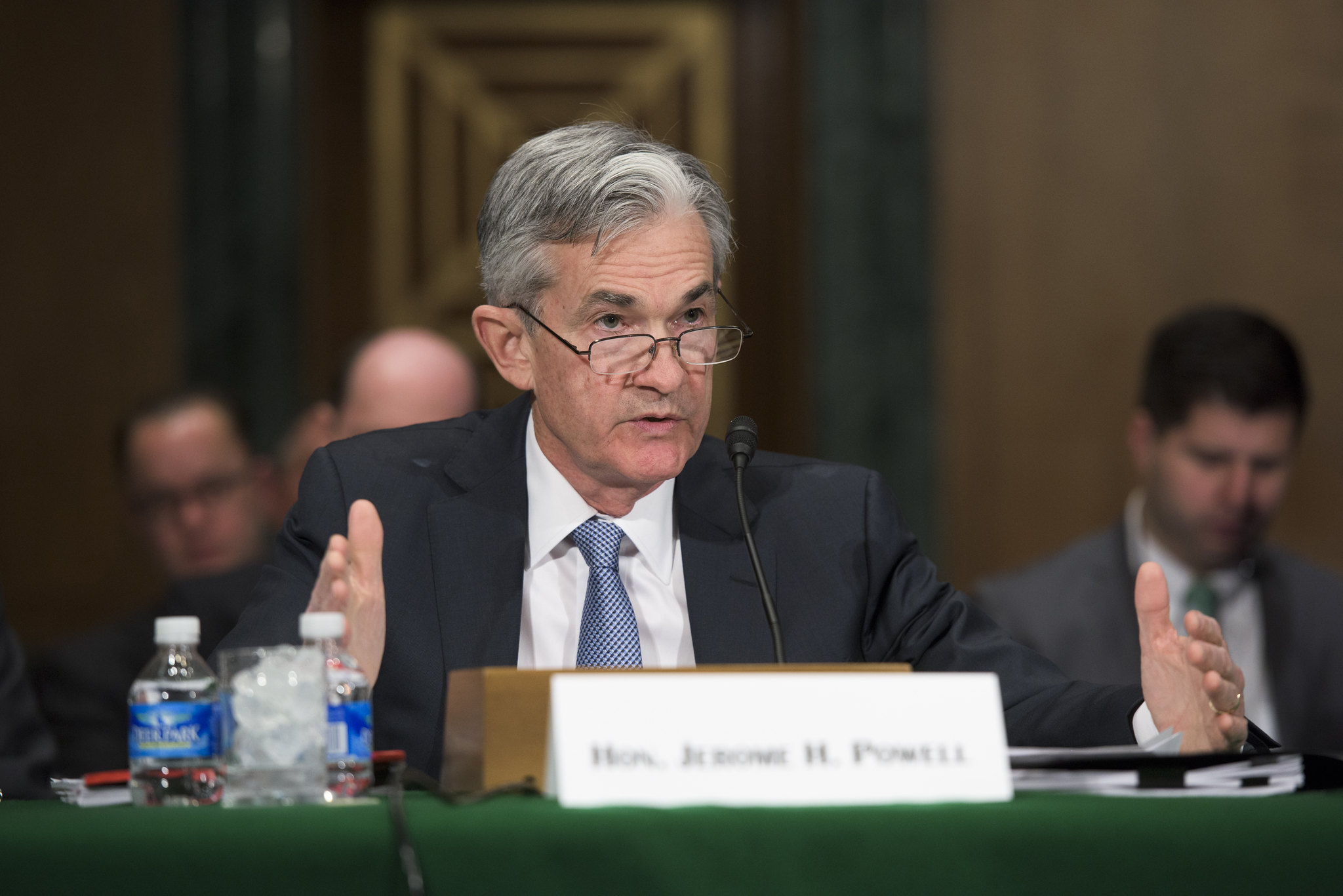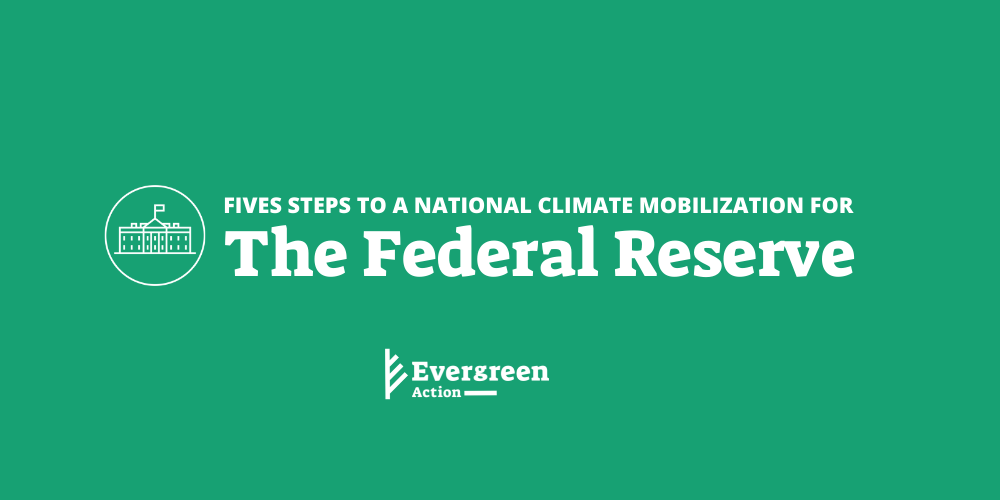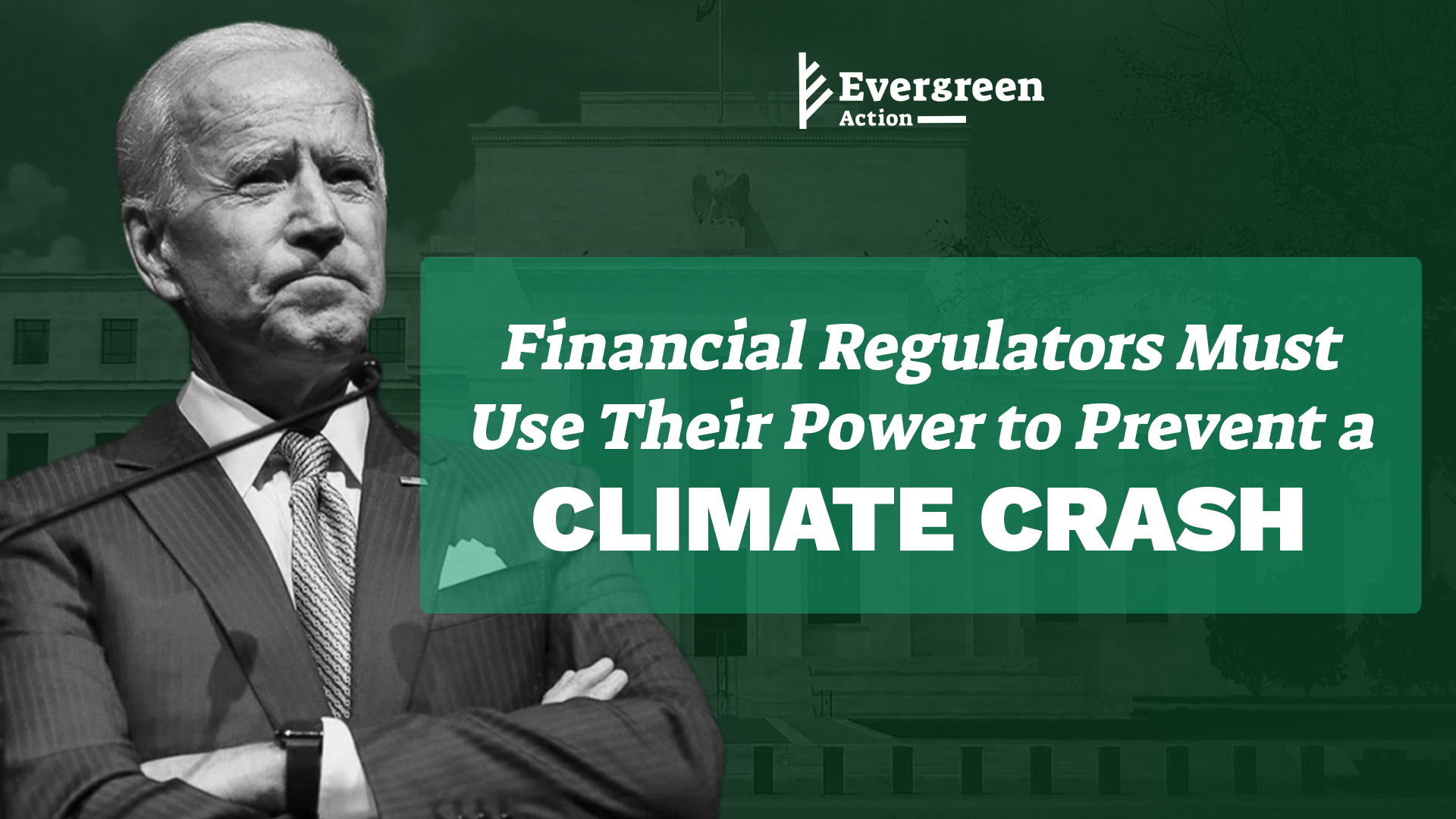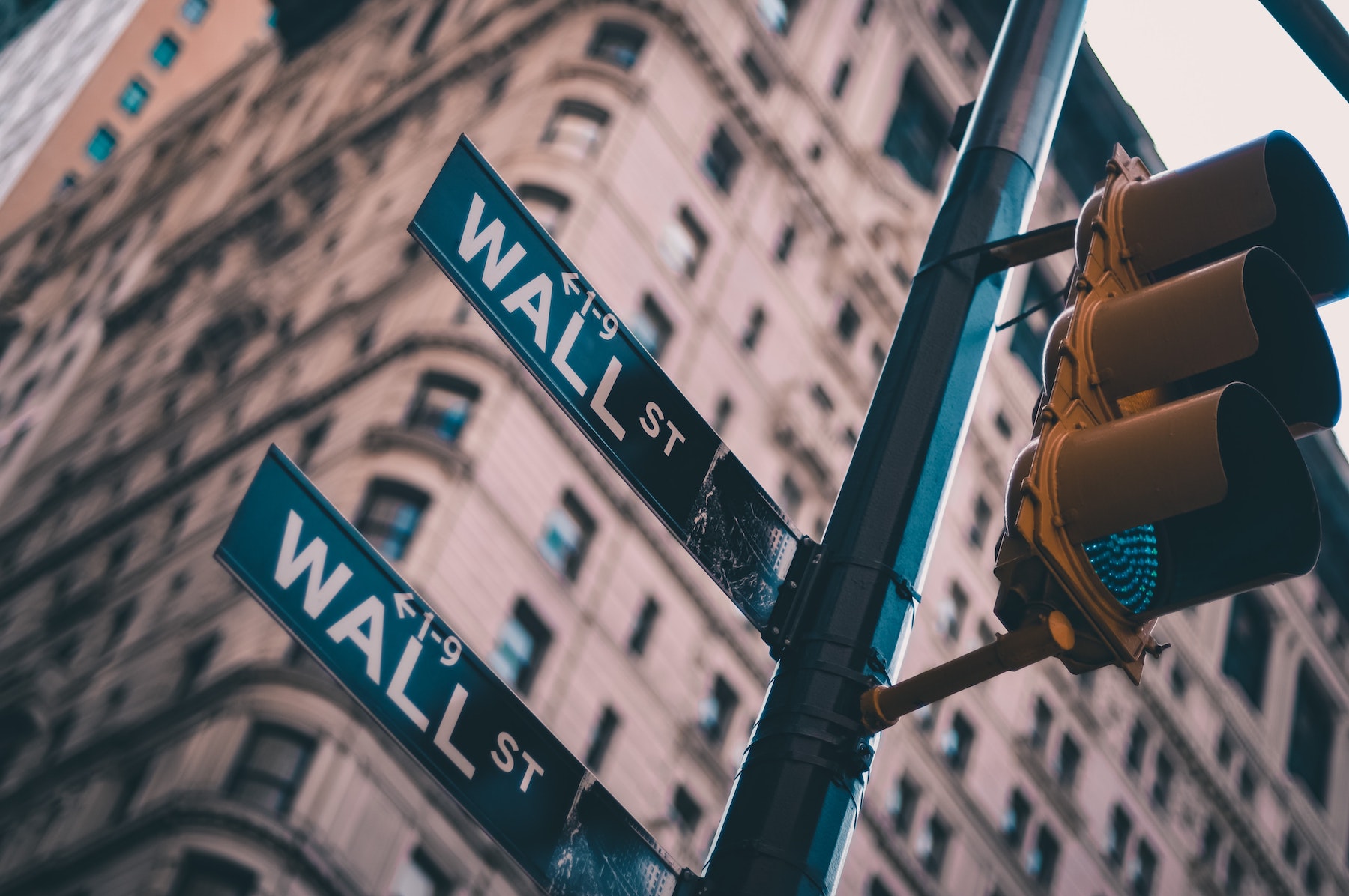by Lena Moffitt, Evergreen Action campaigns director
On Tuesday, Jerome Powell will testify before the Senate Banking Committee at a confirmation hearing in his pursuit of a second term as Chair of The Federal Reserve. To prove he’s qualified for the job, he’ll need to show that he’s prepared to significantly ramp up the central bank’s efforts to measure, monitor, and mitigate climate related financial risk.
Following the Great Recession of 2008, Dodd-Frank authorized regulators to take action against emerging risks, strengthening the Fed’s pre-existing mandate to address systemic risks. The climate crisis is not just an emerging risk—it is the emerging risk that economists are warning could push our economy into a recession “like we’ve never seen before." But in Powell’s first term as Chair of the Fed, the agency has been derelict in its duty to address this threat. In fact, under Powell’s leadership the Fed’s emergency lending portfolio was overweight in oil and gas investment, meaning the central bank has been serving as a lender of last resort for toxic fossil fuel assets that otherwise may not be funded and setting up the entirely wrong incentives when it comes to climate risk in our financial system.



